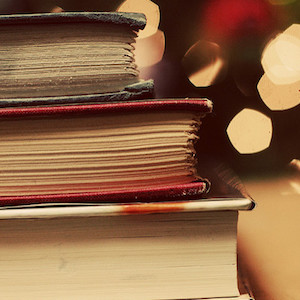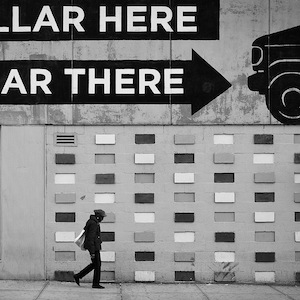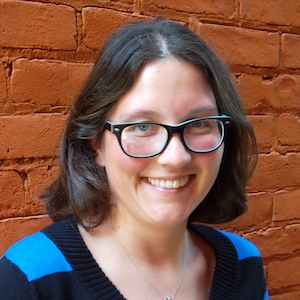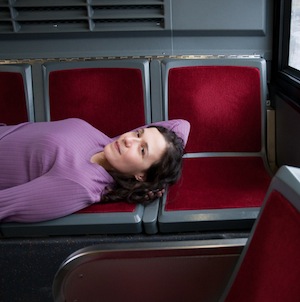Compose Q&A with Lisa Romeo

Please welcome Lisa Romeo, our creative nonfiction editor.
Lisa Romeo lives in New Jersey, where she teaches memoir and creative nonfiction in the Rutgers University Writing Program and at The Writers Circle. She also teaches privately online, works as a freelance journalist, independent manuscript editor and writing coach, and edits for a regional website and for Brain, Child magazine.
Her work has appeared in mainstream and literary venues–including the New York Times, O-The Oprah Magazine, Victoria, Babble, SMITH magazine, Skirt, Sweet, Barnstorm, Sport Literate—and in anthology essay collections. She has work forthcoming in Under the Sun and Lunch Ticket.
Lisa holds a BS in journalism, an MFA in creative writing, and has received awards and grants from the Vermont Studio Center and the American Society of Journalists & Authors. She lives in Cedar Grove, NJ, with her husband and two sons, and is at work on a memoir of linked essays tracing her midlife response to her father’s death.
What is your writing process like?
I spend a lot of time thinking about what I will write, sometimes too much time—and the moment passes. But if I’m lucky, during the thinking phase, I’ll start maniacally jotting down ideas, sentences, phrases, bits of dialogue, images I want to remember. I do this in the tiny notebooks I keep everywhere, on index cards; in the car, while cooking, in the ladies room somewhere – but rarely at my desk!
Or I might start off in my main writer’s notebook, in longhand, where I tend to begin my early lousy first drafts. Eventually it all makes its way to what I call a *brain dump* file on the computer. It feels good to know it’s now all in one spot, waiting for me when I’m ready.
Then I let it sit for a while – marinating, simmering – while somewhere in the back of my brain I’m both trying to forget all about it and at the same time, working on it on some level. Once I get a sense that I’m ready to make a real pass at a purposeful draft, then I work pretty steadily, draft after draft. At some point when I think I’m close, I read it out loud to myself, make notes, and then let it rest a bit more before the final polish. I actually love the revision process (I know, don’t hate me) because that’s when it feels as if I am actually going to have something tangible at the other end of the process.
Of course, tight deadlines make a difference, especially those with paychecks attached. Then the process goes more like this: Put deadline on calendar. Make a few notes. Procrastinate. Panic. Write directly onto computer, revise, revise, revise, panic, hit send. Pour wine.
What books are on your to-be-read list at the moment?
Far too many to list; primarily everything that caught my attention in the past six months or so. Unless it’s something I think I need to talk about in the classes I teach, I usually tend to wait until a book cools a little and everyone has stopped talking about it before I begin reading it.
Glancing over at the teetering to-be-read pile in my office often makes me feel a little guilty and/or anxious (that I’ll never get the time) and there are time I want to forget all about it and go shoe shopping in my spare time instead. But this week my office is being painted and I had to box up the books…and now I miss seeing it there!
In your opinion, what makes an essay, or collection of essays, outstanding?
I simply love essay collections, whether by a single author or an anthology with many contributors. What impresses me most is a writer’s ability to stand both outside of her/himself and inside their own heart and mind at the same time. Point of view is paramount, along with voice. Rich language. Prose that understands its own musicality. Turns that surprise but feel organic at the same time. In a single author essay collection, I like to notice strong but subtle links between pieces. Working through the book, as soon as I think I know the narrator pretty well, I like to be presented with something that knocks me a bit off kilter, keeps me hyper-aware. I want to go down – or out – one more level as a piece, and a book, progresses. Although I am fond of serious and deep narratives and think-y essays, a bit of humor in just the right dose and perfect place is always welcome.
Tell us about the most painful and/or the most hopeful rejection letter you’ve ever received. How about your most victorious acceptance?
When I was about 15, in the days of postal submissions, I sent a poem to Seventeen magazine. A few weeks later, in my SASE (self-addressed stamped envelope), the printed form rejection letter arrived, with this personal handwritten note: “Lisa, this was well-written and fun to read, but it’s too long. Please send us something shorter soon. P.S. Also enclosed is your dry cleaning stub.” I must have accidentally put it in the envelope with my poem, and my mother had been upset that I’d misplaced it!
What’s the most bizarre or exciting literary experience you’ve ever had?
When I was researching a critical thesis during my MFA program, I interviewed several women nonfiction writers, including one of my personal essay idols, Anna Quindlen, who – without my asking — offered to read some of my work, and had lovely things to say about it.
What are your long-term goals for your writing? Where to you hope to be ten years from now?
The older I get, the more I tend to think like Dory: “Just keep swimming, just keep swimming.” In ten years, I hope to be swimming, still.
Where can we read some of your work online?
- “Cradle and All” – Sweet!
- “Tip Not Included” – Barnstorm
- “When the Bee Stings” – Ozone Park
- “Two Weeks in Vegas” – Quay
- “Getting Started” – tiny lights
Some shorter, more mainstream fare:
- “Depression Era Quilt” – Skirt
- “Thrilled” – Brushes With Fame/Smith Mag
- “Santa? Don’t be silly. Still…” – New York Times
Connect with Lisa on Twitter, Facebook, Google+, Pinterest, LinkedIn, and at her blog and website.






